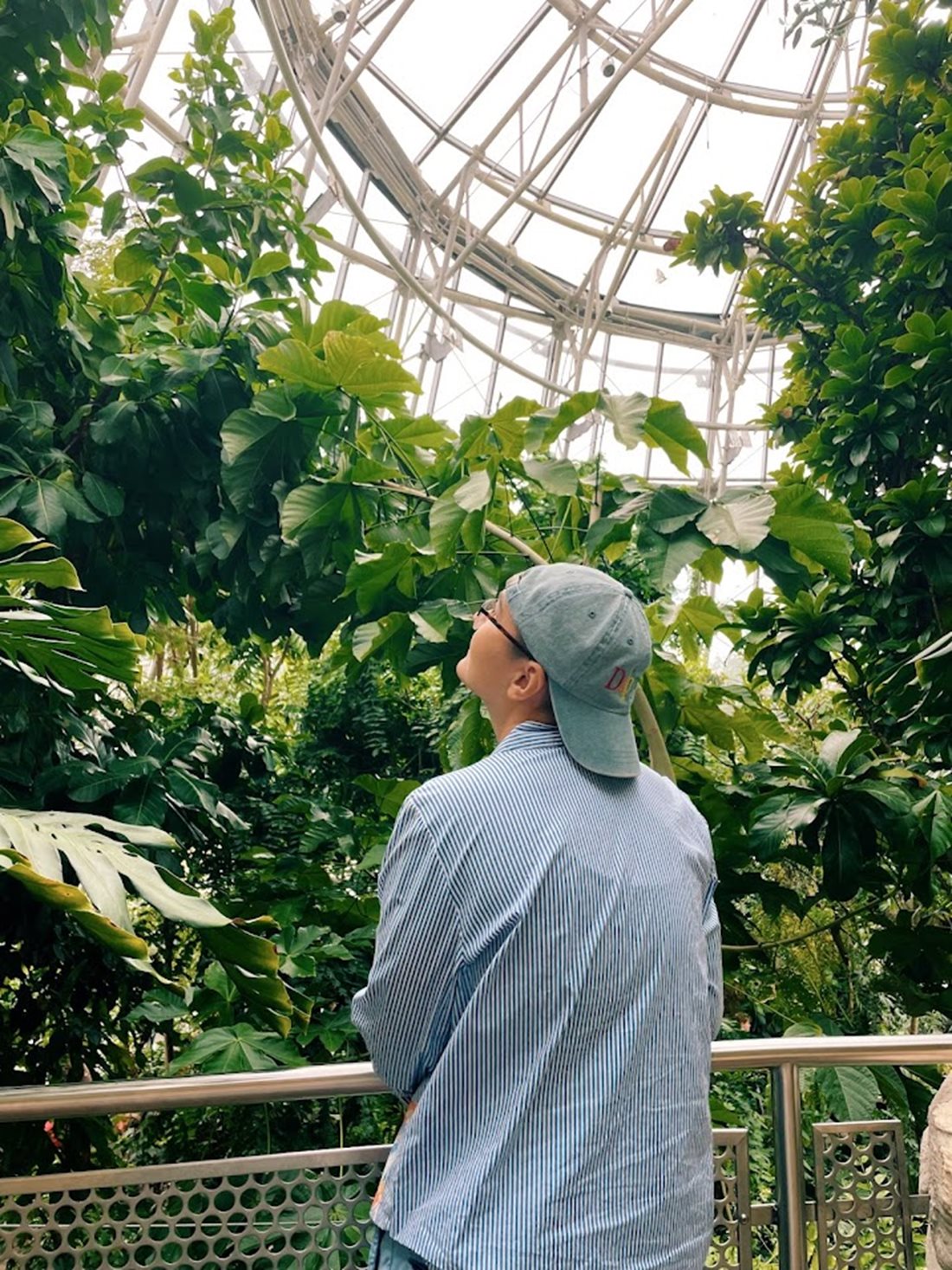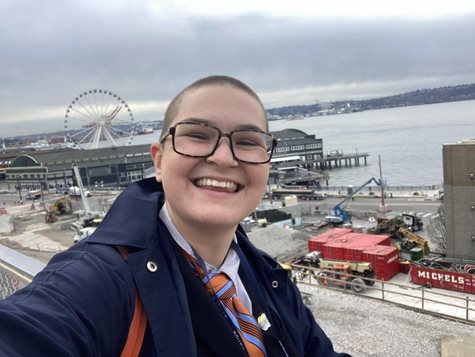October 2023

The Good Life
By Delaney Couri
“How do critical theorists help us to understand how things that we understand as contributing to “the good life” actually hold us back from achieving it?”
This is the phrase that has been on the title page of my fancy comprehensive exam notes since May, guiding the way I think about what I am reading.
“The good life” is such a broad, flexible term, yet if I asked close friends and family, I wouldn’t be surprised if their idea of “the good life” ended up sounding similar to each other. Why? Well, shared background, life experiences, and positionalities all make us prone to think in similar ways, particularly when we consider what is “good.”
These similarities in thought are what mark us as a part of a group or a culture, never cohesive in thinking and action, but close enough that we recognize one another as someone to have kinship with. If we share an idea of “the good life,” chances are we share many common ideals about family, relationships, faith, jobs, and our surroundings. This is incredibly helpful when it comes to building strong connections with others and being able to participate in dialogues where both sides understand, recognize, and can empathize with the others’ wants and needs.
But what happens when we encounter someone whose idea of “the good life” is different from ours? For instance, what if I think that the good life entails having two kids, living in the suburbs with my partner, working at a university, practicing my faith, and living close enough to an ocean to occasionally spend time out on the water, but someone else thinks the good life means being polyamorous, having no kids, living in a city, and working a 9 to 5 job? Disagreements and differing opinions keep life fresh and fun, but disagreements about what constitutes “the good life” can quickly devolve into ethical and moral conflict.
As a critical theorist, my job is to interrogate and understand how what we are striving for in “the good life” may actually be holding us back from reaching it. But what version of “the good life” are we reaching for? What exactly am I interrogating?
It is one thing to advocate and strive for my version of the good life but another thing entirely to make moral requirements of my subjective vision. “The good life” for me includes having a monogamous relationship, but for those who work on behalf of queer liberation, this desire for a traditional marriage may be marked as the very thing that is holding us back from reaching “the good life” as a group. If my version of “the good life” includes two kids, but my partner wants to care for the environment by not adding to the world population, my desire may be marked as selfish and yet again a roadblock to building “the good life” for the earth and its inhabitants.
How do we grapple with these tensions, in our lives and in our work?
The lighter media I consume seems as hooked on this question as scholars are, with dating shows constantly revolving around a couple who can not agree on “the good life.” In each instance, rather than amicably breaking up, the couple continually fights and blames one another for wanting the “wrong” thing. There is no room in these shows for individuals to be “good” people who are just maybe not “good” for each other. Partners who don’t want kids are shown as selfish, those who want to stay at home while their partners work are portrayed as entitled, and those who may have financial reasons for waiting to get married are seen simply as having cold feet and being too controlling on issues of money.
But what if the issues in these shows, in my scholarship, and in my life are not issues of “good” or “bad,” “right” or “wrong,” so much as they are issues of context, position, and perspective?
We must sometimes draw lines in the sand and take stands on ethical issues we feel strongly about— declaring things like racism and sexism as wrong and bad. These issues, these fights, these debates, need strong stances and advocacy.
Ideas around “the good life,” however, may not always be this serious.
If my “good life” includes children and someone else’s does not, I am not going to make a picket sign and craft myself a moral high ground disguised as a soapbox to lament the ways society has gone to ruin just because I disagree with someone else’s choice of lifestyle. Their “good life” is up to them and while I can (and will) interrogate the repercussions and pitfalls, the things that hold both of us back from reaching this elusive goal of a truly “good life,” I will not slip into an attitude of superiority, assured that my choices around faith, family, relationships, jobs, or surroundings are inherently better than someone else’s.
After further reflection, it seems to me that what is keeping most of us back from our ideas of “the good life” is this very posture of ignorance and mistrust. We hold ourselves back from getting what we want when we spend time worrying about what someone else wants. We should be vigilant in fighting injustices, but beyond these areas of moral fortitude, we should begin to be more humble and open in the way we treat the world.
A professor of mine used to start his class with a question. “How are you treating the world and how is the world treating you?”
To achieve “the good life,” I believe that we need to start treating the world with respect, care, and openness. Then maybe the world will return the favor to each and everyone of us who is doing our best to make our own flawed, but beautiful, decisions in a flawed, but beautiful, world. That’s what “the good life” means to me— making and owning my decisions fully, while letting others do the same.
It’s about time I stop holding myself back from reaching it.
